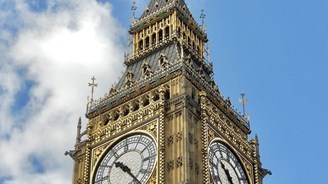Chancellor Delivers Tax Cuts as Full Expensing Made Permanent in Autumn Statement

Both Chancellor Jeremy Hunt and Prime Minster Rishi Sunak had signalled tax cuts were coming in the Autumn Statement. That proved to be the case with businesses, workers and the self-employed all benefitting from the government’s largesse.
Here we round up the key measures announced by the Chancellor to the House of Commons on 22 November.
110 measures
The Autumn Statement followed a fall in the rate of inflation for October and an improvement in the public finances, which gave the Chancellor £27 billion in fiscal headroom. Mr Hunt welcomed that news and said he was aiming to stimulate economic growth with 110 measures for businesses.
However, there was mixed economic backdrop to the Autumn Statement as the Office for Budget Responsibility (OBR) revised down its growth forecasts for 2024, 2025, and 2026 – although it offered an improved outlook for this year and for 2027.
Largest business tax cut in modern British history
In response to lobbying from the Confederation of British Industry (CBI), Make UK and many more business groups, the Chancellor made what he claimed is the ‘largest business tax cut in modern British history’, worth £11 billion per annum.
Mr Hunt did this by making Full Expensing permanent for those businesses investing in IT equipment, plant and machinery.
Full Expensing was first announced in the March Budget and was scheduled to last for three years. It allows businesses to claim back up to 25p in corporation tax for every £1 they invest.
Tax reliefs and incentives
The Chancellor also extended the tax reliefs and incentives for Freeports and the Investment Zones programme from five to ten years. In addition, he announced three advanced manufacturing Investment Zones, which will be established in Greater Manchester, the East Midlands and the West Midlands.
There was a business rates support package worth £4.3 billion over the next five years to help high streets and protect small businesses. This includes a rollover of the 75% retail, hospitality and leisure relief.
Cut for working people
The Chancellor aimed a tax cut at working people as he reduced the main rate of employee national insurance contributions (NICs) by two percentage points from 12% to 10%, from January 2024.
Mr Hunt also cut and reformed NICs for the self-employed. He abolished Class 2 NICs – the flat rate compulsory charge, which is currently £3.45, paid by self-employed people earning more than £12,570. In addition, from April 2024, Class 4 NICs for the self-employed will be reduced from 9% to 8%.
Tackling low pay
The Chancellor said that in order to incentivise work, the government must also tackle low pay. In order to do this, he made the largest cash increase ever to the National Living Wage (NLW).
From 1 April 2024, the NLW will increase by 9.8% to £11.44 an hour for eligible workers. The minimum age for the NLW was also lowered to 21 from 23. The government says this will mean an increase of over £1,800 to the annual earnings of a full-time worker on the NLW and is expected to benefit over 2.7 million low paid employees.
Other measures
The pensions triple lock was maintained and pensioners will now get an 8.55% rise from next April, while benefits are set to increase in line with September’s inflation figure of 6.7%.
The government is also reforming the Work Capability Assessment to ensure that people who can work are supported to do so via the welfare system.
Global challenges
The Chancellor said:
‘In the face of global challenges, we have halved inflation, reduced our debt and grown our economy. As a country we are sticking to a plan that is working. This Autumn Statement for Growth will attract £20 billion additional business investment a year in the next decade.
Our choice is not big-government high spending, high tax because we know that leads to less growth, not more. Instead, we reduce debt, cut taxes and reward work.
Our plan for the British economy is working, but the work is not done.
Rapid response
If you need to understand the implications of the Autumn Statement please join our Rapid Reaction webinar. Mercia’s Pat Nown will review the announcements made and consider any immediate implications and actions for your clients.




